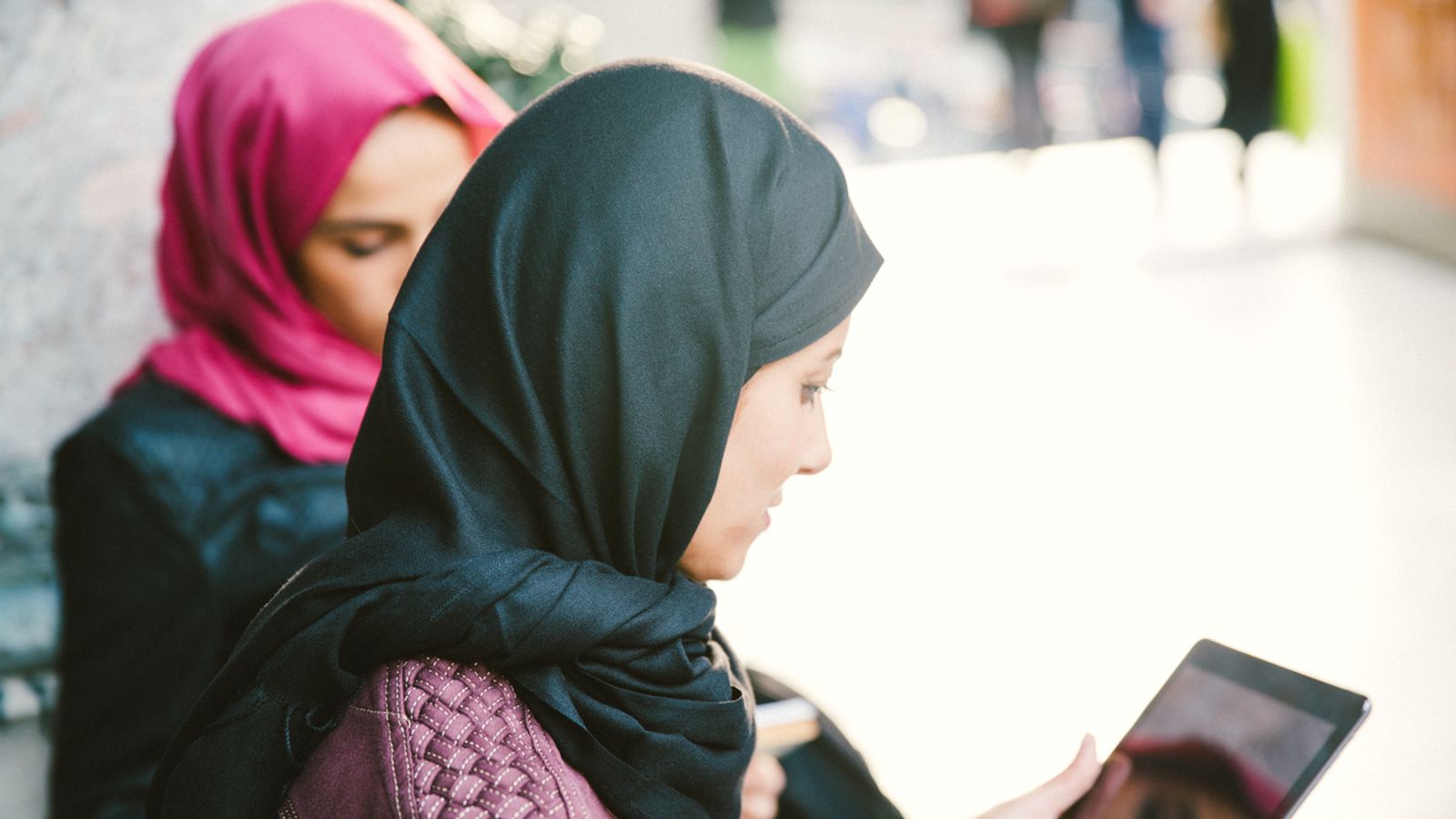Companies in the EU may ban Muslim employees from wearing a headscarf under certain conditions, a top European court has ruled.
The decision was made in a ruling on two cases brought by women in Germany who were suspended from their jobs for wearing one.
The issue of the hijab, the traditional headscarf worn around the head and shoulders, has caused controversy across Europe for years.
In the court cases, both Muslim women – a special-needs carer at a childcare centre in Hamburg run by a charitable association, and a cashier at a pharmacy chain – did not wear headscarves when they started in their jobs.
However, they decided to do so years later after coming back from parental leave.
They were told that this was not allowed, and were at different points either suspended, told to come to work without it or put on a different job, court documents showed.
The EU Court of Justice had to decide in both cases whether headscarf bans at work represented a violation of the freedom to practise religion or were allowed as part of the freedom to conduct a business.
Its response was that such bans were possible if justified by an employer’s need to present a neutral image.
“A prohibition on wearing any visible form of expression of political, philosophical or religious beliefs in the workplace may be justified by the employer’s need to present a neutral image towards customers or to prevent social disputes,” the court said.
However, that justification must correspond to a genuine need on the part of the employer, it said.
In the case of the care centre employee, the court said the employer’s request they remove their headscarf was fair as they had also asked another staff member to stop wearing a religious cross.
In both cases, it will now be up to national courts to have the final say on whether there was any discrimination.
The EU court already ruled in 2017 that companies may ban staff from wearing Islamic headscarves and other visible religious symbols under certain conditions, sparking a backlash among faith groups.






















